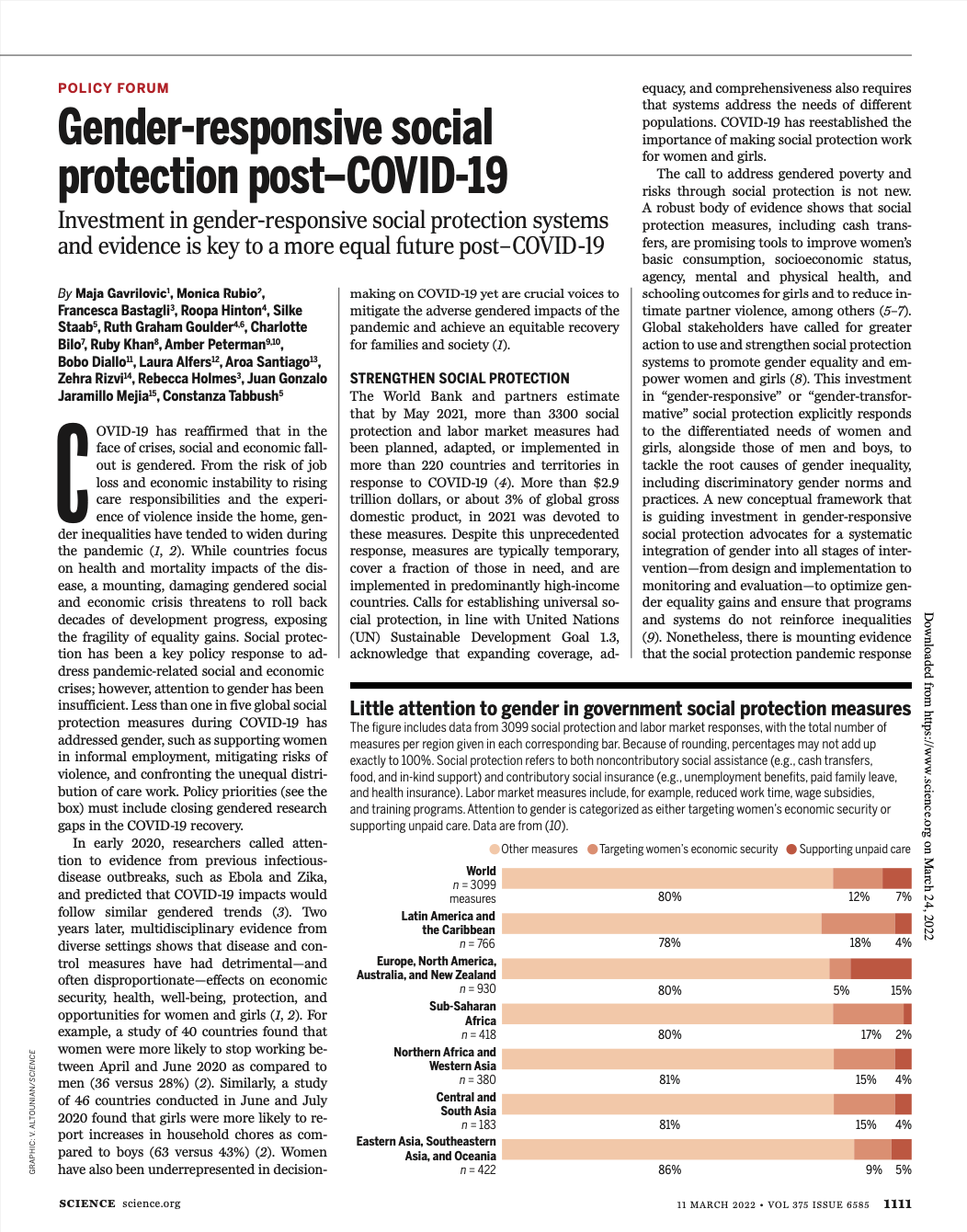COVID-19 has reaffirmed that in the face of crises, social and economic fall-out is gendered. From the risk of job loss and economic instability to rising care responsibilities and the experience of violence inside the home, gender inequalities have tended to widen during the pandemic. While countries focus on health and mortality impacts of the disease, a mounting, damaging gendered social and economic crisis threatens to roll back decades of development progress, exposing the fragility of equality gains. Social protection has been a key policy response to address pandemic-related social and economic crises; however, attention to gender has been insufficient. Less than one in five global social protection measures during COVID-19 has addressed gender, such as supporting women in informal employment, mitigating risks of violence, and confronting the unequal distribution of care work. Policy priorities (see the box) must include closing gendered research gaps in the COVID-19 recovery.
Gavrilovic M, Rubio M, Bastagli F, Hinton R, Staab S, Goulder RG, Bilo C, Khan R, Peterman A, Diallo B, Alfers L, Santiago A, Rizvi Z, Holmes R, Mejia JGJ, Tabbush C. Gender-responsive social protection post-COVID-19. Science. 2022 Mar 11;375(6585):1111-1113. doi: 10.1126/science.abm5922.






